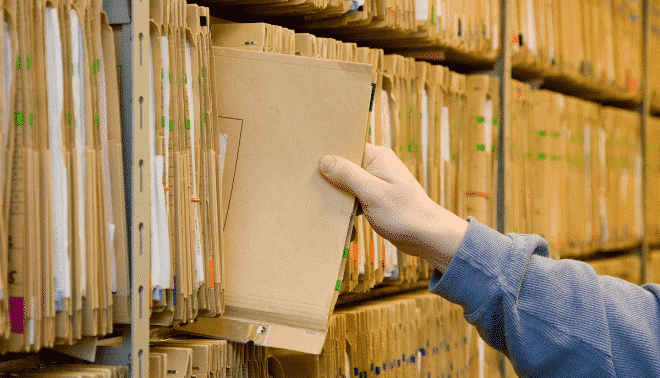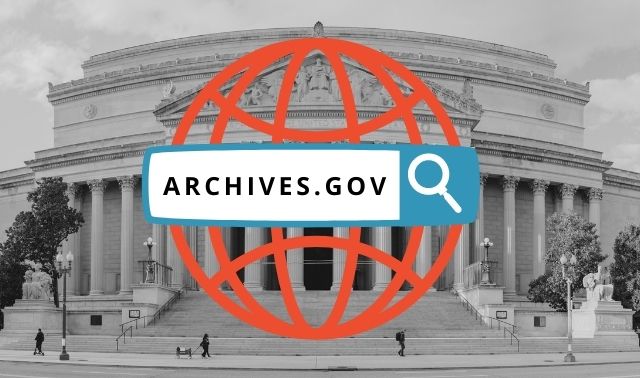Sign up for the Family Tree Newsletter! Plus, you’ll receive our 10 Essential Genealogy Research Forms PDF as a special thank you.
Get Your Free Genealogy Forms
"*" indicates required fields
Several years ago, an obituary in a small-town newspaper led me on a hunt for details about a cousin, Nicholas Masztilyak, who was murdered in Pittsburgh in 1916. According to the obituary, the body was taken to the home of my grandfather, John Alzo, who arranged for the burial.
Suspicious deaths usually were subject to coroner investigations, so I looked for a the report. Online searching led me to the University of Pittsburgh’s Coroner Casefile Wiki, where I learned the university had Allegheny County coroner case files (1877–1973)—and they were indexed.
A visit to the university’s Archives Services Center scored me a genealogical jackpot. Not only did I discover a meaty coroner’s report with details of my cousin’s death, but the file also held a press report and a list of witnesses—with their addresses. The same repository had microfilmed Allegheny County Jail reports, including a register of prisoners received (1893–1925) and court dockets (1864–1926), which let me document the arrest and court appearance of the assailant. The clues I needed to solve a family history mystery were there in that off-campus building that I hadn’t even known existed.
Some people think libraries are so yesterday, full of dusty books that are more efficiently searched online. But those folks couldn’t be further from the truth. Repositories around the world hold a wealth of manuscript records: diaries, court records, account books, letters, maps, registers, plantation papers, and countless other one-of-a-kind items. Others may house rare copies of early published histories, biographies, genealogies and travelogues. They’re materials genealogists would go nuts for—if only they knew such treasures existed.
Well, now they’ll know: Follow our five search strategies to find out what family secrets you might find lurking in those library stacks.
1. Investigate Local Libraries
It may sound old-school, but start with your local public and historical society library. Such hometown collections tend to have genealogies, donated family histories, historical photographs and more.
Go to the website first. Most libraries have online catalogs, and if you’re lucky, there’ll be a finding aid spelling out exactly what type of records the library has and how to access them.
Searching card catalogs
Always check the card catalog if there is one. In most libraries, not everything is in the computerized catalog: That database may list all materials acquired after a certain date, with items acquired earlier added as staff resources allow.
Tip: When you find an item of interest in a library catalog, check the subject it’s cataloged under. Run a subject search for that term (or just click on the subject if it’s a hyperlink) to find related materials.
In addition, some types of materials, such as microfilm or newspapers, may be cataloged separately. Library catalogs may describe manuscript collections generally, such as “Smith family papers, containing correspondence, account books and newspaper clippings of Gerald R. Smith, 1850–1880, two cubic feet.” Look for finding aids that list manuscript collection contents in more detail. Also ask about supplementary catalogs, uncataloged collections, and surname files of miscellaneous materials (usually contributed by genealogists researching those names).
You’ll search library catalogs most often by keyword, which finds your search term in every part of the catalog entry—title, author, description, etc. If your keyword search nets a flood of results, narrow the field by searching for the word in an item’s title instead. A genealogy-focused collection may have a surname search field in its catalog.
But don’t limit yourself to searches for surnames: Catalog listings don’t include every name mentioned in a book or a collection of manuscripts and photos. Try keywords for your ancestors’ neighborhoods, street name, ethnicity, church, school, military unit, trade and employer, and look for the names of their neighbors and other associated families. Also enter names of photography studios whose imprints appear on old family photos—you may find additional pictures. And don’t forget to search for the types of records you want, such as voter registers or naturalization records.
When you hit on a promising item in a library catalog, check what subjects it’s cataloged under. Then run a subject search for that topic (you may be able to do this by clicking on the subject in the item’s catalog entry) to see similar items. Searching for other materials by the same author also may prove helpful. Check the indexes and tables of contents of any books you find.
Getting help from librarians
Don’t be afraid to reach out to those in the know when you can’t find what you need. Librarians can help you find a resource, point you to the right catalog and let you know of any uncataloged collections. You also may be able to request a free quick lookup, or more-in-depth searching for a fee. Use the Ask a Librarian or Live Chat feature available on many repository websites, or just pick up the telephone and call.
Tip: When you can’t find a library resource you need, ask those in the know. Use the Ask a Librarian or Live Chat feature on many repository websites, or just pick up the telephone and call the reference desk.
That’s what I did a few years ago when I was looking for information about a couple on trial for petty theft in Washington County, Pa., in 1936. I learned that the Citizen’s Library had microfilm of two local newspapers for the time period, so I contacted the reference librarian, gave her the names, a date range and the circumstance of the arrest, and sent a check for $10 to cover the research fee. One paper had a small mention of the crime, and the librarian sent me the photocopy. This saved me the eight-hour drive plus on-site research time.
Look for details on library classes, workshops and lectures on genealogy and local history. Not only is this a great way to increase your research skill set and network with fellow researchers, but you’ll also meet librarians who could become your go-to people when you’re having a hard time tracking down a resource.
2. Investigate Large Libraries
Next, set your sights on genealogy repositories with a regional, national and international scope.
The FamilySearch Library
The FamilySearch Library (FSL), based in Salt Lake City, boasts more than 2.4 million rolls of microfilmed records; 727,000 microfiche; 356,000 books; plus periodicals and digitized records. Through the FamilySearch web portal, you can search the extensive catalog from your home, and link to materials matching your search that are digitized on FamilySearch.org—all for free. Materials might also be at local FSL branches, called FamilySearch Centers.
Place searches on a county or town are your best bet here to see what’s available for your ancestral areas; keyword searches can help you find specific record types. A surname search will find materials focusing on the name you type; but not every name in a book is called out in the catalog.
Because FamilySearch’s catalog is linked to WorldCat (see No. 3), you also can use the WorldCat link in an items listing to see other libraries that have a copy of microfilm. The WorldCat link also is handy for getting access to books.
Read a tutorial of FamilySearch’s Digital Library here.
The Allen County Public Library
The Allen County Public Library Genealogy Center in Fort Wayne, Ind., has one of the largest genealogical research collections available, including records from the entire United States and around the world. Search its free databases, including researcher-submitted family files, Bible records and a surname file. You can also search the center’s online catalog by clicking Our Resources, then Free Databases.
For help finding some of the Genealogy Center’s resources, click Pathfinders at the top of the website and pick a guide from the menu. Note that microfilms and fiche aren’t included in the library catalog. To find these materials, use the Genealogy Center Microtext Catalog. You’ll choose a category of records, possibly specify a state and/or county, and see a list of available films in that category.
The National Archives
Don’t forget to surf over to the US National Archives and Records Administration (NARA). Only a small fraction of the National Archives’ historical records are online, but the catalog lets you search NARA’s catalog of archival holdings, its electronic records (which includes digitized records and indexes to some record types), and its online research aids. It’s worth a search for your ancestor’s name, but also try searching for the type of record you want. (Find a tutorial here.)
If you don’t have luck with the catalog, try browsing the Guide to Federal Records and the research topics.
The Library of Congress
Next, go to the Library of Congress, where you’ll find the online catalog and millions of digitized maps, photos, documents, sound recordings and more. Our favorite way to search is by entering a name or topic into the search box on the home page. Then on the search results page, use the filters on the left to narrow search results by original format (such as web page, book, photo, newspaper, etc), online format (image, web page, PDF, etc.), date range (you can choose a century, then drill down to decades and years), subject, location and more. Read a tutorial here.
3. Use Online Finding Aids
Several online tools help you do a broad search across many libraries, saving you time in repeated searches. Try these:
- WorldCat is the world’s largest global catalog of library collections, listing the holdings of more than 10,000 public, private and academic libraries worldwide. It’s often the only place to find holdings of corporate archives, churches, historical society records, etc. Results show you the nearest libraries holding each item, so you can go there or borrow it through interlibrary loan. See a WorldCat tutorial here.
- ArchiveGrid, another tool from WorldCat, holds more than 7 million descriptions of archival materials in libraries, museums, historical societies, and archives. It provides access to detailed descriptions from online finding aids to historical documents, personal papers, family histories, and other items, as well as contact information for the institutions holding the collections. Search by keyword in the home page Search box.
- The National Union Catalog of Manuscript of Collections (NUCMC) is the Library of Congress’ online database for searching archival and manuscript collections in US libraries that don’t have access to their own cataloging systems. (These listings also are added to ArchiveGrid and WorldCat.) Catalog listings created before 1986 are published only in print, in annual bound volumes (your library may have copies). Listings created after that are searchable online. To search, use one of the forms. The first option, “Simple Search (Word List),” finds your search term in the catalog entry fields for title, notes and subjects. The second option, “Simple Search Form (word list)—all names fields,” looks in all name fields in a catalog entry. Try both search options. Figuring out the name of the institution holding an item of interest can be tricky: You have to find the code assigned to that institution and then search for it. See the instructions.
- Archive Finder, formerly called ArchivesUSA, is a database from ProQuest that catalogs manuscript collections located in repositories across the United States, United Kingdom and Ireland. It includes NUCMC, the Directory of Archives and Manuscript Repositories in the United States, and the National Inventory of Documentary Sources. You must search Archive Finder through a library that subscribes to the service; check your library’s website or ask at the reference desk. You can search by date range, state, cities or repository.
- Consortium catalogs: State and regional library searches let you focus your search on libraries in a particular state or region. For example, OhioLink covers many university libraries in Ohio, and Melvyl includes holdings of the libraries of the University of California and the California State Library.
4. Research State Archives and Libraries
State archives and/or libraries may hold archived county court and other records, old vital records, state and federal censuses, records of state-run institutions (such as prisons and asylums), newspapers, state and county histories, Sanborn fire insurance maps, land office records, state legislature records and more. Each state assigns somewhat different roles and materials to its state archives and library, so explore the websites of both institutions for every state where your relatives lived (and for states that once had jurisdiction over the places your ancestors settled).
Many state archives and/or libraries maintain multiple catalogs to describe their diverse materials. The Ohio History Connection, for example, keeps online catalogs for newspapers, books and serials; manuscripts and photographs; and museum collections.
Search all available catalogs for your family names and other search terms. Similarly to other libraries; some materials may not be cataloged, so it pays to ask a librarian for assistance if you’re not finding what you need.
Check the archive’s or library’s website for a guide to its genealogy collection, which should list the type of records available and provide links to any finding aids. Some archives let you search finding aids. Search with the type of record you want, such as state hospital or state census. Also look for an inventory of county records the repository holds, and check whether it has records from your ancestor’s county courthouse for the years he lived in that county.
5. Study College and University Archives
You’ll be surprised at the genealogical information you can find in libraries of academic institutions. College and university archives include diverse resources of value to family historians, including academic or employment files of students and faculty, transcripts, class lists, yearbooks, photos, dissertations, and curriculum vitae, and records documenting post-graduate lives of alumni. Some graduates bequeathed diaries, letters and personal effects to their alma mater. If your ancestor was a professor or other official, you’ll likely find research work and academic papers.
Many schools also collect manuscripts, biographical files, newspaper clippings, historical records, photographs and other memorabilia related to the local area and its history, even if there’s no direct affiliation with the university.
Take for example, the story of Guy C. Clark of Tompkins County, NY, who was sentenced to hang in February 1832 for the murder of his wife, Fanny. Cornell University’s Kroch Library has a file in its rare manuscript collection containing newspaper articles about the crime and minutes from the trial, even though Clark didn’t attend Cornell. A broader search for this subject turned up results for Harvard University Library, which has a digitized version of “A sketch of the life and adventures of Guy C. Clark” on its website.
Start with libraries near the places your ancestor lived. Search the online catalog (or let your WorldCat and ArchiveGrid searches lead you to the institution) and peruse each library’s website for finding aids and descriptions of genealogical materials. Look for the words special collections, historical, digitized and rare books. Search the site for the word genealogy to find resource guides. And be sure to browse any blogs written by library staff: Posts on the University of Cincinnati LiBlog, for example, describe items in the library’s collection, such as Cincinnati Workhouse jail registers.
On-site researchers at university libraries can typically find free access to subscription services including ProQuest databases and LexisNexis legal collections. Remote access via the library website is usually limited to faculty and students.
If you’re researching a student or staff member at the school, check the university archive policies. You may have to prove your relationship to see a student’s records, and you won’t get access to records of living alumni.
Wherever you are in your genealogy search, learning to locate library materials may be your key to success.
Bonus: Exploring Ethnic-Specific Record Collections
To learn more about your immigrant ancestors, look for ethnic collections in libraries, museums and organizations dedicated to particular heritage groups.
For example, the Balch Institute for Ethnic Studies at the Historical Society of Pennsylvania has collections that span the 17th to the 21st centuries and include family papers, business and organizational records, newspapers, photographs, postcards and more. Similarly, the Immigrant History Research Center at the University of Minnesota, established in 1965, has a vast archive of ethnic newspapers, oral histories, and personal papers, along with records of agencies that served immigrants.
Check colleges and universities, such as the Valente Collection of Italian-American history at Seton Hall, the Archives of Irish America at New York University, and the Polish collections at Central Connecticut State University and the University of Buffalo.
Look to repositories focused on particular immigrant groups, too. Among resources at the National Czech and Slovak Museum and Library in Cedar Rapids, Iowa, is a digitized oral history project. Similarly, the American Historical Society of Germans from Russia in Lincoln, Neb., has a library and museum with a strong genealogy program.
Find other ethnic-focused collections by checking Cyndi’s List under Societies & Groups or running a Google search for the ethnic group and terms such as library or museum.
A version of this article appeared in the October/November 2014 issue of Family Tree Magazine.










